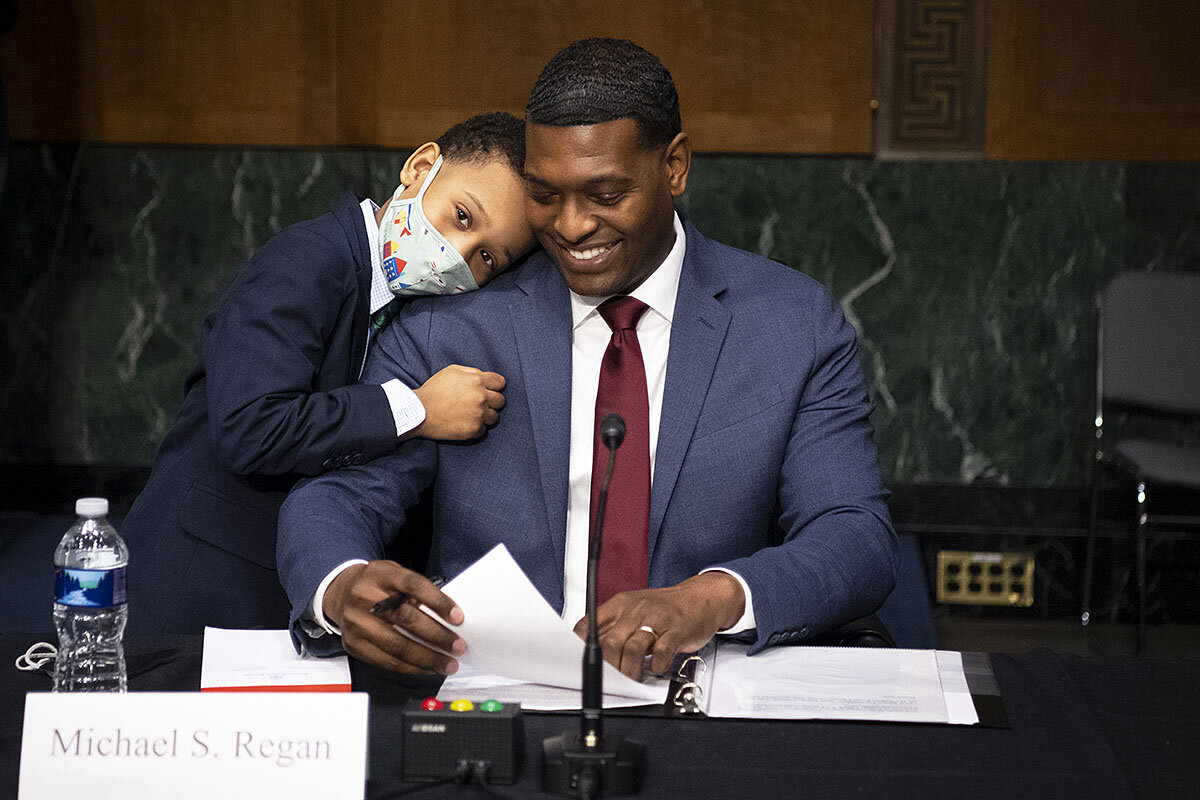When can we drop our masks and swap smiles with strangers in public again? As cases and deaths plummet, some see signs for cautious optimism amid continuing vigilance.
Monitor Daily Podcast
- Follow us:
 Stephen Humphries
Stephen Humphries
Last year, North Carolina native Michelle Fishburne packed her belongings into an RV for a 10,000-mile cross-country trip. Her mission: to research a book about how the pandemic has changed ordinary Americans. (Read more about Michelle’s in today’s story about third acts.)
“If I had to sum up what I’ve seen in the 250 to 300 interviews I’ve done, it’s pluck,” says Ms. Fishburne, who’s met homeless people, medical workers, teachers, judges, hairdressers, and even a performing clown on her journey. “Pluck is defined as ‘spirited and determined courage.’ That is what I’ve been seeing in person after person.”
During a stop in Columbia, Missouri, Ms. Fishburne met a 21-year-old student who exemplifies that quality. Ine’a Gregory recounted how she decided to do something impactful during lockdown. So she launched an e-commerce retailing business. The motto for her company, , is “Embrace the uncomfortable and walk with purpose.”
The majority of Ms. Fishburne’s new acquaintances feel more connected to other people than before the pandemic. “They have lifted their heads up from their previously busy lives and they are thinking about, and seeing, and caring about other people,” says the self-employed storyteller. That extends beyond family and friends. Americans are concerned about the well-being of others they’ve never met – including those across party lines.
“I have heard those five little words – ‘I think about those people’ – over and over again,” she says.










